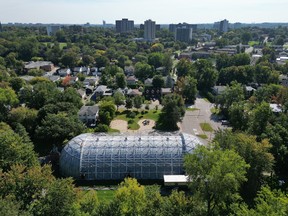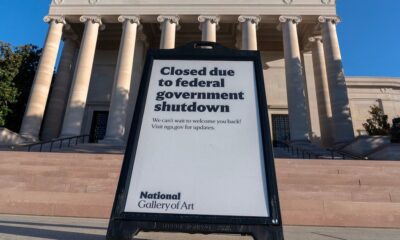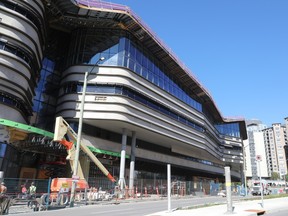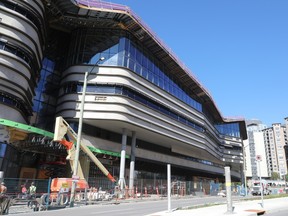Business
Ottawa’s $10.2 Billion Infrastructure Challenge Looms in 2026 Budget

In a recent announcement, Mayor Mark Sutcliffe outlined the proposed budget directions for the City of Ottawa, focusing on assembling a $5 billion budget for 2026. Sutcliffe suggested a 3.75 percent increase in overall property taxes, asserting that this adjustment is necessary to sustain essential services for residents. The City’s finance and economic development committee is set to discuss these budget proposals on September 2, 2023, followed by public consultations and a formal draft budget presentation in November.
This budget marks a critical juncture as it will be the last one issued by the current council before the 2026 municipal elections. However, a significant gap has emerged in Sutcliffe’s budget plan, notably the absence of strategies to address the city’s aging infrastructure. This oversight raises concerns given the findings from a series of Asset Management Plans presented to the city council earlier this year.
Assessing Ottawa’s Aging Infrastructure
The reports revealed a daunting reality: Ottawa faces a staggering $10.2 billion funding shortfall over the next decade to maintain and replace its aging public assets. The average age of the city’s arenas and rinks stands at 45 years, while aquatic facilities average 40 years. Community centers and fieldhouses are not far behind at 39 years, and cultural assets average a concerning 62 years.
According to the city’s assessments, approximately 14 percent of the 34 arenas and ice pads are categorized as being in poor or very poor condition. The situation is similar for community assets, with 17 percent of the 172 facilities rated poorly, and 22 percent of cultural assets facing the same bleak evaluation. Alarmingly, 41 percent of the outdoor assets are also in poor or very poor condition.
This crisis in infrastructure does not stem from a lack of expenditure; rather, it reflects a significant shortfall in necessary funding. The Recreation and Cultural Services Asset Management Plan indicates planned expenditures for renewal and upgrades, alongside accommodating the city’s growth. However, it reveals an average annual shortfall of $87.5 million.
The Future of Ottawa’s Public Facilities
The pressing need for investment to maintain the city’s public assets cannot be overstated. It is crucial for the city council to acknowledge this responsibility and take decisive action in the upcoming 2026 budget. As articulated by Alex Cullen, a former city councillor, it would be irresponsible to ignore the necessity of addressing these issues now, rather than postponing them further.
As Ottawa prepares for the upcoming budget discussions, residents and stakeholders alike are left hoping that the council will prioritize the urgent maintenance and development of the city’s critical infrastructure. The future of Ottawa’s public assets, and the quality of life for its residents, depend on it.
-

 World3 months ago
World3 months agoScientists Unearth Ancient Antarctic Ice to Unlock Climate Secrets
-

 Entertainment3 months ago
Entertainment3 months agoTrump and McCormick to Announce $70 Billion Energy Investments
-

 Science3 months ago
Science3 months agoFour Astronauts Return to Earth After International Space Station Mission
-

 Lifestyle3 months ago
Lifestyle3 months agoTransLink Launches Food Truck Program to Boost Revenue in Vancouver
-

 Technology2 months ago
Technology2 months agoApple Notes Enhances Functionality with Markdown Support in macOS 26
-

 Top Stories1 week ago
Top Stories1 week agoUrgent Update: Fatal Crash on Highway 99 Claims Life of Pitt Meadows Man
-

 Sports3 months ago
Sports3 months agoSearch Underway for Missing Hunter Amid Hokkaido Bear Emergency
-

 Politics2 months ago
Politics2 months agoUkrainian Tennis Star Elina Svitolina Faces Death Threats Online
-

 Technology3 months ago
Technology3 months agoFrosthaven Launches Early Access on July 31, 2025
-

 Politics3 months ago
Politics3 months agoCarney Engages First Nations Leaders at Development Law Summit
-

 Entertainment3 months ago
Entertainment3 months agoCalgary Theatre Troupe Revives Magic at Winnipeg Fringe Festival
-

 Politics1 week ago
Politics1 week agoShutdown Reflects Democratic Struggles Amid Economic Concerns





















